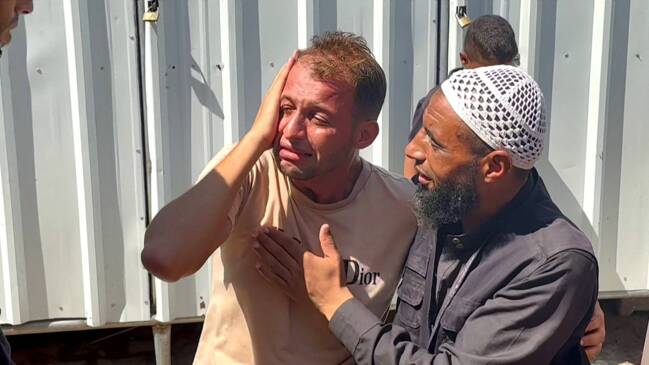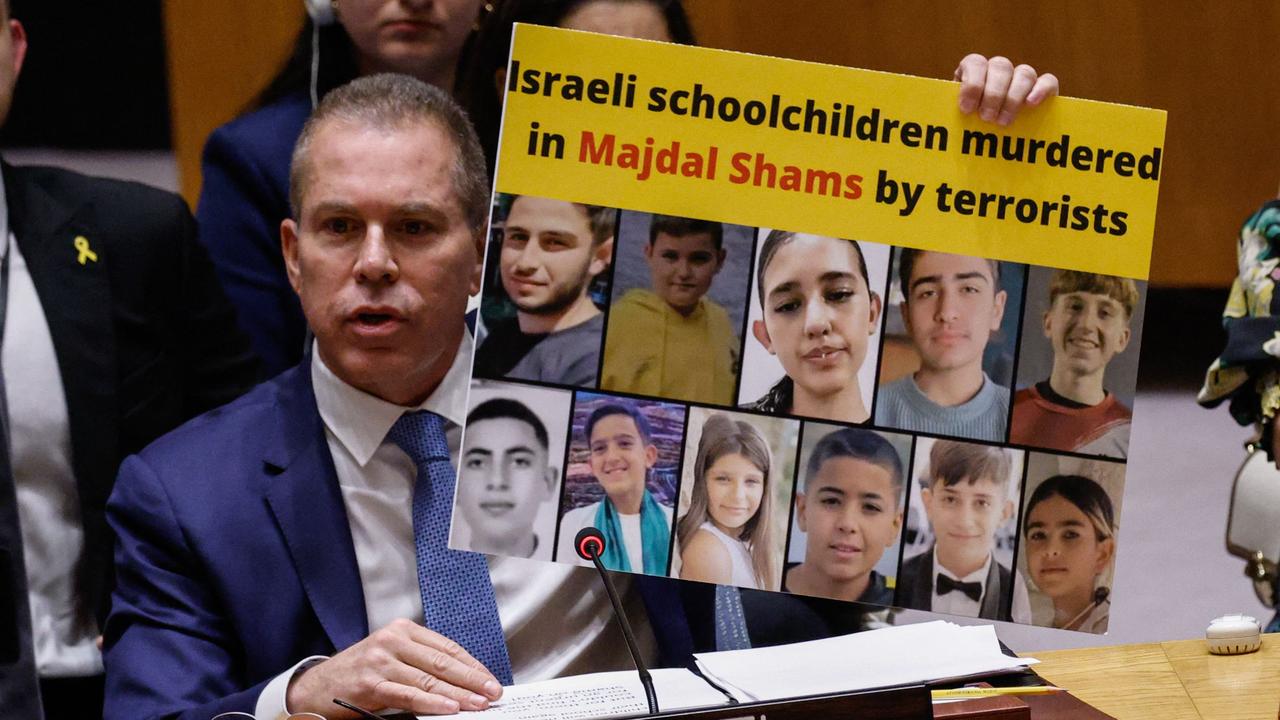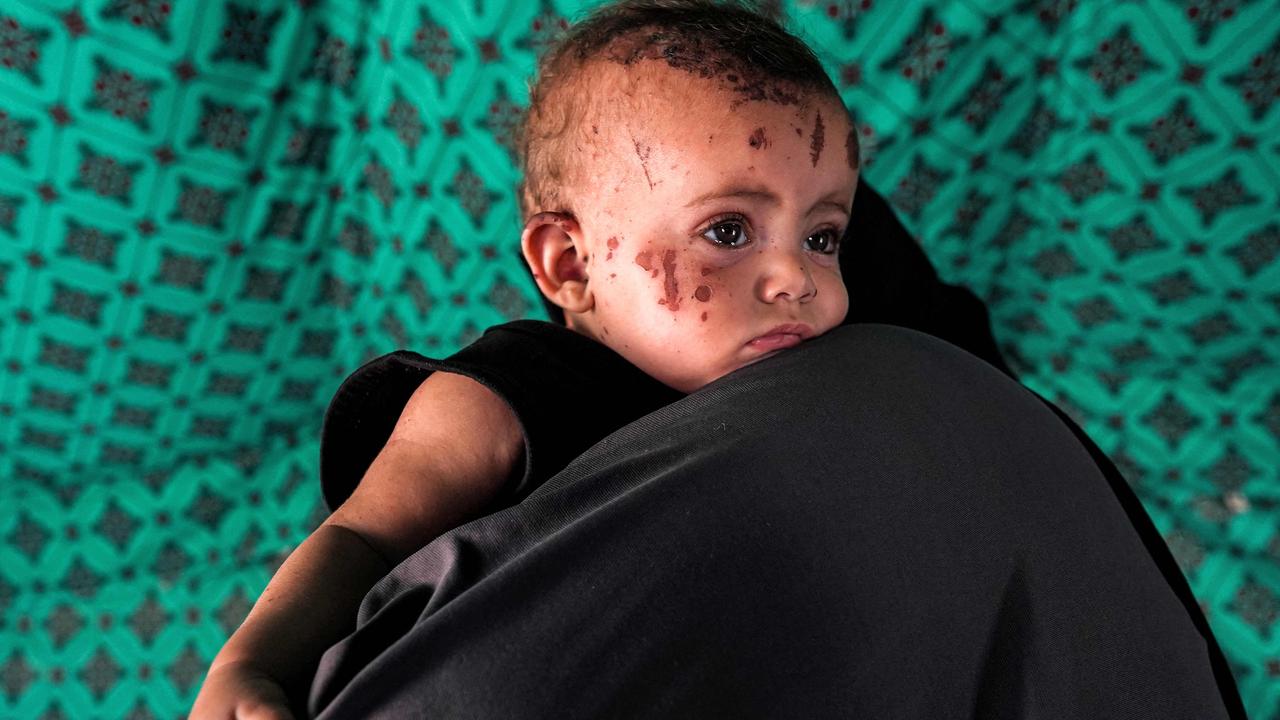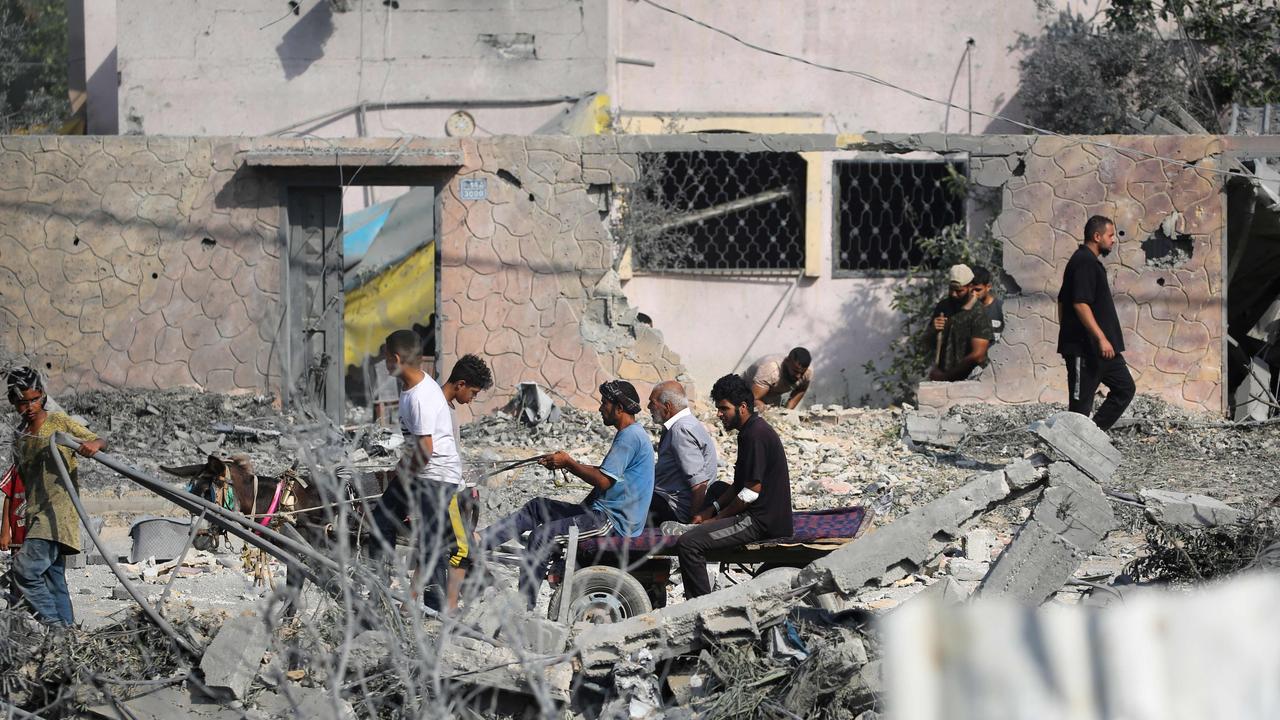Horror grows as ‘inevitable war’ looms in the Middle East
The world is watching on in horror as all-out-war draws ever nearer - but is there actually an end game in the Middle East?

What’s the point?
Why seize hostages and slaughter unarmed civilians?
Why assassinate political leaders in far-off lands?
Why lob rockets into civilian centres?
Why drive entire populations out of their homes and force them between one refuge and another?
Is there actually an end game in the Middle East?
The world is once again bracing for a further escalation in conflict emanating from the Holy Land and across surrounding nations.
“We are on the escalation line at the point where it is really very close to a regional war,” retired Major-General Israel Ziv told Israeli media earlier this week.
“I don’t think any of us really know … what exactly the Iranians and Hezbollah intend to do.”
Nor does anyone know what Israeli Prime Minister Benjamin Netanyahu intends to do.
He says he wants “total victory”. But not what that means. Or how he hopes to achieve it.
“Many are mystified by Israel’s willingness to risk what could be a devastating war with Lebanon’s Hezbollah or Iran,” senior Haaretz news service editor David Rosenberg argues in Foreign Policy.
Is this deliberate?
Is this accidental?
Is this inevitable?

“The conflict in Lebanon could go from limited war to all-out conflict, whether due to a miscalculation on Israel’s or Hezbollah’s part or due to a deliberate decision,” says Centre for Strategic and International Studies (CSIS) Professor Daniel Byman.
He adds both parties may come to believe “that it is in their interest to fight what seems to be an inevitable war sooner rather than later”.
Beneath it all, the root cause of the conflict remains unchanged.
Some 100,000 heavily armed Hezbollah fighters – vowed to destroy the modern incarnation of Israel – sit on their side of the Lebanon border with an arsenal of tens of thousands of rockets.
Israel’s occupation of UN-defined Palestinian lands in Gaza and the West Bank shows no sign of abating. And the establishment of new illegal settlements is being encouraged.
“The ‘total victory’ that Netanyahu promises is unlikely to ever be achieved against Hamas, much less against Hezbollah or Iran,” says Rosenberg.
“Restoring Israel’s deterrent ability is a more realistic goal, but not a painless one.”
Once and future king
Israel’s National Security Cabinet Minister Itamar Ben-Gvir this week once again breached a peace agreement with the Islamic community by leading a group of ultra-Orthodox Jews to pray within the Al-Aqsa Mosque at the heart of Jerusalem.
It’s a site sacred to Judaism, Islam and Christianity.
It’s been occupied by Islam for well over 1000 years.
But Israel’s new ultranationalists want it.
They want to re-establish the Bronze Age tradition of animal sacrifice in a new temple built to Old Testament specifications. This would be the third Jewish temple built on the site since the tribes of Israel took over the hilltop town in the early Iron Age.
Ultra-Orthodox Jews have already begun scouring the planet for a “perfect red heifer” to rededicate the “Holy of Holies”. Replicas of holy objects described in the Torah have already been built. A revived priestly class is being prepared.
All that’s needed is the seizure of Temple Mount, the demolition of the 1300-year-old Dome of The Rock, and for construction work to commence.

Only then will the ultranationalists accept that the biblical “United Kingdom” of kings David and Solomon has been restored.
Most Palestinians don’t share the Jewish religion, however.
The Holy Land has been a patchwork of communities in the 1954 years since the destruction of the Second Temple and the erasure of the kingdom of Judea in AD70. This includes differing Christian and Jewish sects under the Roman Empire and its later incarnation, the Ottoman Empire.
And many of these adopted a new faith – Islam – under the ministries of the Prophet Muhammad around 600AD.
But, during the 1800s, a new political movement – Zionism – arose among Europe’s widely dispersed Jewish communities. This called for a return to their “Promised Land”.
Israel was formally established under United Nations Resolution 181 in 1947. This partitioned Palestine into clearly defined Arab and Jewish states, with Jerusalem as a separate international city.
The resolution was rejected by the Arab community.
Israelis, Palestinians and other Middle Eastern states have been fighting over every aspect of this ever since.
Elusive victory
“Israel doesn’t have very good choices,” says Rosenberg.
“Despite its image as an always-triumphant military power, it is worthwhile remembering that Israel is a small country in terms of population, geography, and economy.”
Prime Minister Netanyahu insists Iran crossed a red line when it unleashed a direct missile and drone attack on Israeli soil in April.
But Iran insists it only did so after Israel crossed a red line – attacking its embassy in Damascus, Syria.
Now, Israel has assassinated a senior Hezbollah leader in Beirut and the political leader of Hamas in Tehran.
Iran says it has no choice but to retaliate. As does Hezbollah.
It’s a spiral of blame that leads to a regional war.
“Should Israel launch an all-out war, it would be a difficult fight and one that is devastating to both Israel and Lebanon,” says Byman.
“And after the guns from this more massive conflict stop firing, Israel may find its conflict with Hezbollah unresolved, with little gained strategically even if Israel wins militarily.”
Hezbollah and Israel have been here before.

A month-long clash in 2006 saw rockets rain down across Israel.
Israeli troops suffered heavy losses as they surged into Lebanon in response.
But the death toll among Hezbollah and Lebanese civilians was by far the highest.
“Neither side was eager for a repeat match in the years that followed,” says Byman.
That repeat match, however, appears about to begin.
And the chances of “total victory” appear even more remote.
“Strategy, however, has never been an Israeli strength,” argues Byman.
“Israel’s national security decision-making is highly politicised, and short-term thinking dominates the calculus. Indeed, more than 10 months into the fighting in Gaza, Israel still lacks a realistic endgame.”
This time, Israel’s Defence Force has already been fighting an intensive and extended campaign.
“Should war come, Israel would find itself be hard-pressed to sustain a conflict for long in Lebanon,” Byman adds.
“Its military is exhausted by almost a year of war in Gaza, with many Israeli reservists having served multiple tours there. Spare parts, ammunition, and other essentials are also in relatively short supply for a sustained war. Thus, even a more massive war is likely to be one of limited duration, enabling Hezbollah to ride out the storm.”
Spiral of hate
“Since the October 7 attacks, the Israeli right-wing has grown even more radical,” argue Israel Studies Professors Ilan Baron and Ilai Saltzman.
“For them, and many others in Israel, Hamas’s massacre proved that there can be no compromise with the Palestinians or their supporters.”
Fear drives Israel’s justification for overwhelming violence.
It regards the refusal by some Arab groups and nations to accept the existence of its state to be a threat to the very survival of the Jewish people.
“Facing non-state actors with an ideological commitment to ending Israel’s existence, it is not enough to demonstrate effective defensive capabilities,” argues Rosenberg.
“It requires a willingness to strike out even in response to relatively small provocations and to go on the offensive.”
Then there’s religion.
“Ultra-Orthodox nationalist politicians who overtly call for a state in which religion plays a more definitive role include Bezalel Smotrich, Itamar Ben Gvir, and Avi Maoz – all key players in Netanyahu’s coalition government,” write Baron and Saltzman.
These are part of a new religious Zionist movement known as the Hardal.
“(This) believes that God promised the entire biblical land of Israel to the Jews, rejects Western culture and values, and fundamentally opposes the accepted norms of Israeli liberalism, such as LGBTQ rights, some separation between synagogue and state, and gender equality,” Baron and Saltzman add.
“These conservatives see Israel as existing in an eternal state of war, with peace unthinkable – a state, to borrow the phrase of Israeli historian David Ochana, akin to ‘Sparta with a yarmulke’.”
But Israel does face regular attacks, whether by rock-throwing protesters, terrorists or rocket fire.
And some 70 years after the mass expulsion of 700,000 Palestinians from their homes, villages and cities, there’s little sign of hatred abating among the second and third-generation descendants of what has become known as the “Nakba”.
Only slivers of the West Bank and the greatly-reduced Gaza Strip remain nominally under Palestinian control.
“The aim of Israel’s ultranationalist right is, in fact, to make life unbearable for Palestinians in Gaza and the West Bank,” argues Rosenberg.
“Anxious to ensure that the extreme right remains in the governing coalition, Netanyahu has bent to their will.”
Jamie Seidel is a freelance writer | @JamieSeidel






